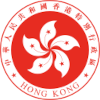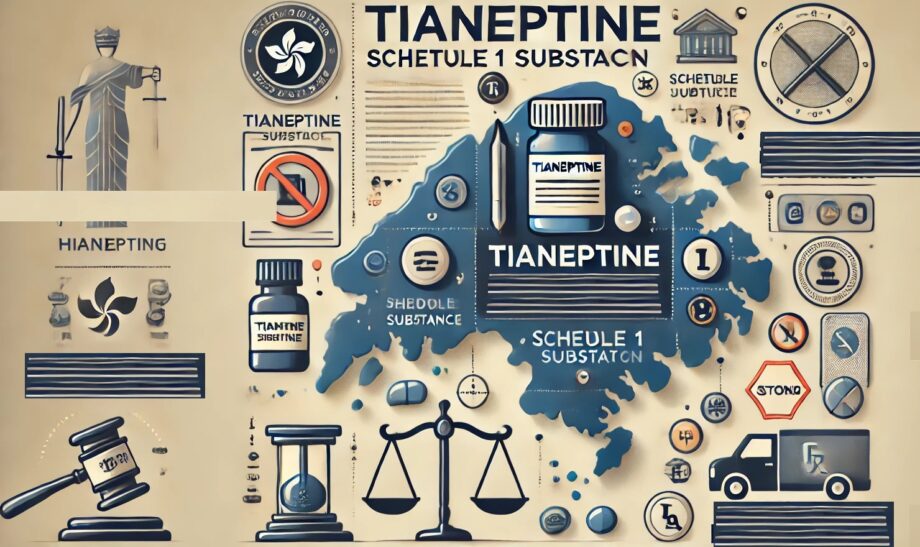Tianeptine, a pharmaceutical compound originally developed as an antidepressant, has garnered global attention due to its unique pharmacological profile and potential for misuse. Its legal status varies widely around the world, reflecting differing public health priorities and regulatory approaches. Tianeptine In Hong Kong, is regulated under guidelines to prevent misuse and ensure public safety.
Tianeptine’s Characteristics and Global Concerns
Tianeptine is primarily used in some countries as a prescription medication for the treatment of depression and anxiety. Unlike traditional antidepressants, it operates through the modulation of glutamate receptors and has an influence on the brain’s opioid system. This has led to its misuse in certain regions, as some individuals seek its mood-enhancing or euphoric effects in high doses.
Given these concerns, many countries have tightened their regulations on tianeptine, classifying it as a controlled substance or outright banning it. Misuse-related issues such as dependency and withdrawal symptoms have fueled calls for stringent monitoring.
Legal Classification in Hong Kong
In Hong Kong, tianeptine is classified as a Schedule 1 substance under the Pharmacy and Poisons Ordinance (Cap. 138). This classification places controls on its manufacture, sale, and use. Substances under Schedule 1 can be supplied with prescription , ensuring that its use is restricted to therapeutic purposes under professional supervision.
Why Is Tianeptine Regulated in Hong Kong?
The regulatory framework in Hong Kong reflects concerns about the potential for misuse and the risks associated with unregulated use. Authorities have prioritized public health, particularly given tianeptine’s growing reputation as a substance of abuse in some countries.
Hong Kong’s proactive approach is consistent with its broader strategy of regulating psychoactive substances that have the potential for addiction or adverse health outcomes. The strict classification ensures that access is limited to patients who genuinely require it for medical purposes, reducing the risk of misuse.
Public Awareness and Medical Community’s Role
Healthcare professionals in Hong Kong play a pivotal role in the responsible prescription of tianeptine. Patients must undergo thorough evaluation and follow-up to ensure that the benefits of the medication outweigh the risks. Public awareness campaigns further educate residents about the dangers of self-medication and the importance of adhering to prescribed treatments.
Tianeptine is not typically available over-the-counter (OTC) in most countries due to its potential for misuse, dependency, and withdrawal issues. In regions where it is legal, it is often available only by prescription. However, some unregulated or semi-regulated markets might have OTC products containing tianeptine, often marketed as dietary supplements or nootropics.
Common Brands of Tianeptine (Prescription)
These are some well-known brands under which tianeptine is prescribed:
- Stablon (commonly used in Europe)
- Coaxil (used in Eastern Europe and parts of Asia)
- Tatinol
- Tiova
OTC or Unregulated Products
In countries where tianeptine is not regulated or where enforcement is lax, it may be marketed under the guise of supplements or nootropics. These products often bypass pharmaceutical regulations and may be sold online. They might not explicitly list tianeptine as the primary ingredient, and their labeling might include terms like “research chemicals”
Some examples include:
- Tianeptine Sodium: Marketed as a nootropic powder or capsule in online stores.
- Tianeptine Sulfate: Claimed to be a slower-release version for longer-lasting effects, often sold online.
Warnings
- Quality and Safety Concerns: OTC tianeptine products may lack quality control, consistent dosing, or proper labeling, increasing risks of adverse effects or overdose.
- Legal Risks: In many countries, possession or purchase of tianeptine without a prescription can lead to legal consequences.
- Health Risks: Unsanctioned use of tianeptine has been associated with dependency, withdrawal symptoms, and misuse.
Advice for Consumers
If you are considering tianeptine for its therapeutic effects, consult a healthcare professional. Prescription products ensure that the medication is administered safely and monitored for side effects. Avoid purchasing tianeptine from unverified sources.
Indian Brands of Tianeptine
The most popular tianeptine brand in India is called Tynept and it is made by Intas pharma.
Availability and Regulation in India
Tianeptine’s availability in India is limited and may not be as widespread as in European or Asian markets like Russia or China. Its classification under Indian drug regulations is not explicitly detailed, suggesting it may not be a first-line treatment. Patients interested in tianeptine should consult healthcare professionals, as it might only be accessible via prescription or through specialized channels.
Indian Companies and Export
Indian pharmaceutical companies are known for manufacturing generic drugs for export. It’s possible that tianeptine is produced for international markets rather than for widespread use domestically. Examples of such manufacturers could include:
- Sun Pharmaceuticals
- Cipla
- Intas
These companies might produce tianeptine under contract for export but do not heavily promote it in the domestic market.
Recommendation
If you are looking for tianeptine in India for medical use, it is essential to:
- Consult a licensed physician to determine if it is appropriate for your condition.
- Verify the legitimacy and safety of any brand or supplier.
- Ensure compliance with local regulations to avoid legal or health risks.
Conclusion
In Hong Kong, the legal status of tianeptine reflects a cautious yet balanced approach to public health. Tianeptine is often bough from OTC where it’s mostly consumed as nootropic. The most popular country where to purchace tianeptine is India.
As awareness of tianeptine’s misuse potential grows globally, Hong Kong’s legal framework serves as an example of how careful regulation can safeguard the well-being of its population.

